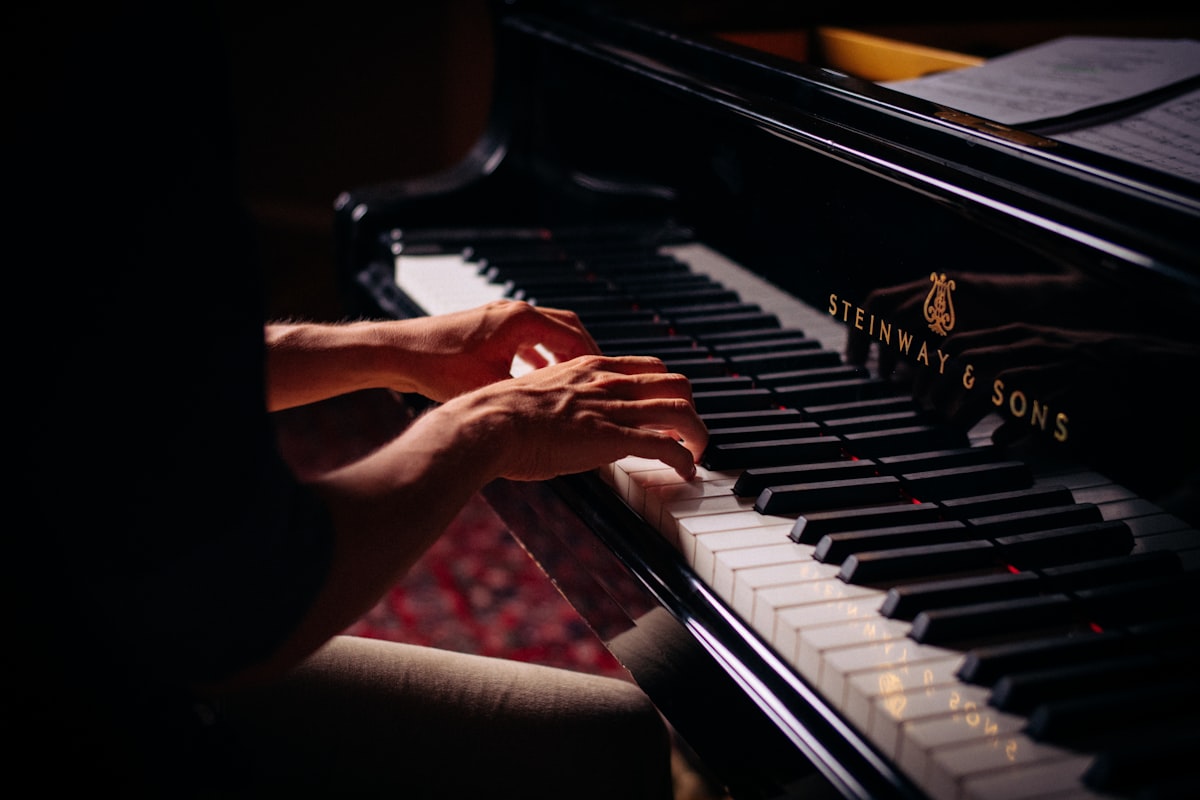Among the many doubts raised about online music learning, two are the most spontaneous and frequent questions: Can online piano lessons completely replace face-to-face lessons? Can online piano lessons be an effective tool for comprehensive teaching?
Considering the context of instrumental music lessons, where the lack of a direct relationship with the sound and the communication between teacher and student leads to a less immersive perception in the same space where teacher and student interact, this could be seen as a limitation in the conduct of the lesson and the quality of learning. But beyond this obvious shortcoming, and considering that video and microphone are a filter, albeit a sensitive one, let's consider the many important aspects for which online piano lessons can prove to be a powerful tool.
A teacher-student relationship is a pluralism of didactic aspects, many of which can certainly be undertaken through online communication, as long as they are part of the professional's proactive approach to teaching. A figure capable of generating targeted and productive teaching through this technological means. And here we come to a fundamental point, where online piano lessons can be professional and very effective, as long as they are entrusted to a professional teacher.
The professional-ethical question that a teacher asks himself is precisely that of the reliability and validity of his work with the means used, further considered within a broader framework of research and study. A situation that today benefits from the Internet and the technological means at our disposal. Bearers of honest and reliable professionalism.
In short, I would like to give some examples to show the positive and powerful aspects for which establishing consultations and online lessons is very positive. A large number of students come to consult a professional teacher only after a few years of fictitious learning, often in an amateur environment, with inappropriate programmes, suggestions collected here and there on the web and then cobbled together.
This is often due to a lack of valid references in the context of social interaction or concrete motivations in the immediate future. In this case, on the other hand, the Web offers us the possibility to seek advice and to communicate without barriers and geographical distances, facilitating with much anticipation the ease of access:
• University websites;
• Websites of accredited and certified teachers;
• The sources of research for any musicological and pedagogical information;
• A comparison of different courses;
• A comparison of professional methodologies on a wider scale.
Online contact with the student is therefore a powerful tool for the professional teacher to communicate their teaching, placing themselves on a level of comparison and a more lively selection process.
Let's take the example of two different types of students. A young student, still at school, whose musical curiosity and sensitivity lead him to wonder what it really means to study with a qualified and academically accredited professional and, above all, how to better identify them. The potential of the online offer of qualified tuition is precisely to satisfy this curiosity, to fill in the gaps of empty information and to provide more direct means of comparison.
It's natural for a student or beginner to think that any cheap course, app or YouTube tutorial channel will suffice to meet their needs. What they don't realise in this first phase is that, over time and with effort, they will have accumulated bad habits, technical and instrumental difficulties and incorrect information, all wrapped up in an amateurish approach, following fictitious, misleading lessons based on generalities that have not been developed for their specific case.
It is only after turning to an experienced professional teacher that one realises that what took two years could have been achieved in two months, having to subsequently face a greater effort in removing the wrong acquisitions. This happens by falling into the net of app sellers, Facebook groups, amateurs turned improvised teachers who roam the web, often under the search "how to do". Real companies for the purpose of selling, and with which the professional and academic world does not want to be confused or associated.
The question remains, however, as to how far we, as professionals, can avoid comparison with these means of public use, which represent an increasingly obvious fact, a not insignificant user base. For example, a first step forward in the responsible discernment of teaching quality is the open comparison between universities and music schools of collective notoriety, which, with technological advantage, have quickly established their own study and dissemination platforms, open to the interest of an audience not only of students but also of enthusiasts, establishing themselves also as a reference model, certainly different from the various generic social platforms, unable to position themselves as accrediting universities able to certify the academic value of each publication.
For a more advanced student, my positive experience of teaching online manifests itself in the possibility of choosing the students I prefer, being able to identify tangible qualities in them, in a phase of maturity that allows me to guide their path even from a distance, that is, to focus the lesson on the more conceptual, verbal and analytical aspects that can be optimally imprinted in online communication.
Another aspect, one of the most important in piano teaching and musical development in general, but often underestimated, is the training of the student's ability to teach themselves. Underestimated because the time a student spends between one lesson and another, weekly or or biweekly, or from one master class to another, is spent alone, in daily individual practice.
Isn't this span of time a projection of what was said and implemented during the lesson? In fact, the most important resource that distinguishes the best students from others, that distinguishes those who are able to build results, is a better management of their time in home study, trying to best grasp the choice of learned study strategies, on a targeted programme, addressed during the lesson. This is where the effective, I would say advantageous, use of the online lesson comes in, which is intended as a closer and more direct coaching, aimed at the essence of the question "how to study", also allowing an autonomous organisation of one's own rhythm and lesson schedule. Furthermore, the possibility of coordinating and planning one's appointments according to a personalised and more direct calendar need is a great advantage of the online connection with one's teacher, thanks to the simple direct booking.
To conclude, I would like to mention some of the aspects that I focus on in response to the most frequent requests: the formation of the basics of piano technique, the development of piano technique in comparison with historical manuals, the interpretation of a specific piece, the choice of an interpretive approach, the discussion of performance practices, guided courses in aural training, the training and development of sight-reading, score reading, the formulation of programmes and repertoires, the study of executive-performing skills, memorising the score, the analysis of forms and genres.
S.Severini


